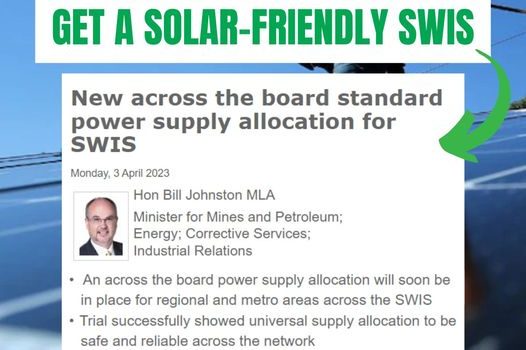
What is State Capture?
23 May 2024
We expect that our democratically elected leaders ultimately work in our interest and if they don’t, that we could easily vote them out. State capture is a type of gross corruption where this is no longer the case. Powerful corporations, families or religious sects may gain such great influence over the instruments of government that it can’t operate without first getting their agreement for its actions. The government will begin to cater to these powerful figures and their narrow interests. In Australia there are powerful resource companies that have undue influence over our governments. Of particular concern is the fossil fuel industry standing in the way of effective action on climate change.
The first layer of state capture is influence. Influence can take many forms from legal political funding, undisclosed “dark money” donations and direct contact, through to revolving doors between business and government. Fossil fuel companies legally gave nearly 1 million in donations to both political parties in 2022, including Woodside, which ensures they are in good grace regardless of the winner of the election. Both Liberals and Labor have fundraising forums that act as direct contact between business and politicians allowing privileged information exchange. Once again Woodside shows up as a platinum member, paying the highest “membership” fees to both parties’ forums, cementing themselves in the centre of politics in Australia.
While we should all have access to our democratic representatives, we rarely exercise that right and if we do, we often must jump through hoops. For companies, their lobbyists and business leaders have direct lines of contact to political decision makers. Part of this is due to the formation of a “revolving door” between politics or the offices of politicians and the boards of these companies. High profile examples of this include former federal resources minister Ian MacFarlane and former state treasurer Ben Wyatt both on the board of Woodside. Notably they served different parties but are now working together for the same company. More recently, Mark McGowan accepted a consultancy role with BHP within a few months of resigning. If a politician does not rock the boat against the state captors, they will be more likely to find jobs in industry once they retire. Ministers from both major parties routinely accept generous consultancies, lobbyist roles and paid engagements as media commentators immediately after exiting Parliament. While the direction of flow for senior MPs may be mostly one-way, the career paths of senior public servants, consultants and industry figures are frequently more circular between private industry and the public sector.
Beyond just having influence over all sides of politics, they also have influence over information that both politicians and the public receive. The media regularly publish stories in favour of fossil fuel companies. Fossil fuel companies host or fund many community events, sports teams, and the arts in order to appear to be good corporate citizens. It is encouraging to see a growing backlash against this greenwashing.
To fight state capture we must first be able to recognise it. From there we must demand that our politicians stop giving undue consideration to these companies. End political donations, restrict the role of lobbyists in Parliament, ensure there is much more transparency, and introduce binding rules about “revolving door” movements. There is nothing better you can do than getting out there and participating in politics. Call your local representative and talk to them about what matters to you. We can fight state capture with people power.
Sources
- Australian Democracy Network. Confronting State Capture. Canberra: Australian Democracy Network, 2022.
- Market Forces. Dirty and Dark – political donations from the fossil fuel industry. Market Forces. [Online] Market Forces, February 1, 2023. https://www.marketforces.org.au/politicaldonations2023/.
- 350 Boorloo Perth. Captured State: The influence of the gas lobby on WA. Perth: 350, 2020.


Discussion